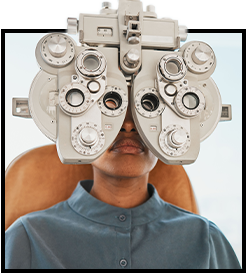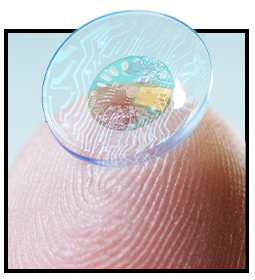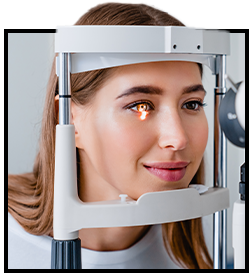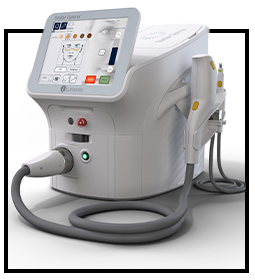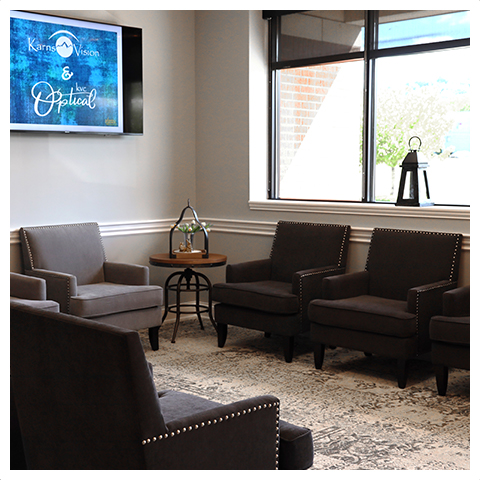Protect Your Vision from Diabetic Complications
Just over 1 in 10 Americans lives with diabetes—that’s more than 34 million people. Diabetes can impact your overall health and your vision along with it.
Many people are aware of how diabetes impacts overall health but don’t always consider its ocular impacts—diabetes is a leading cause of blindness in adults.
People with type 1 and type 2 diabetes are at an increased risk of developing vision problems. We recommend that kids and adults with diabetes have annual, comprehensive eye exams. Taking a proactive approach to health is important, especially if you’re dealing with diabetes.
Book your diabetic eye appointment today, and let us help you preserve your sight!
Request AppointmentWhat Is Diabetes?
Diabetes is a disease that impacts the production of insulin, a hormone that regulates your body’s blood sugar levels.
When you eat, most of your food is broken down into glucose (sugar) and travels through the bloodstream. An increase in the amount of sugar in the bloodstream signals the pancreas to release insulin, which in turn lets the sugar into your cells. If you have diabetes, your body either does not make insulin or doesn’t use it properly.
Over time, elevated blood sugar levels can lead to various health issues, including vision problems. Even if you don’t notice any change in your vision, it’s still important to have your eyes examined regularly. Book your appointment today.
How Does Diabetes Affect Vision?
Diabetes can lead to serious vision problems and even blindness, so it’s important to book an annual eye exam to check for any changes in your vision or eye health.
Visual issues caused by diabetes may include conditions like blurry vision, diabetic retinopathy, and diabetic macular edema.
Blurry Vision
Your body adjusting to diabetes medication or changes in your health routine can lead to blurry vision.
Elevated blood sugar can lead to a buildup of fluid in the eyes and cause the eye’s lens to swell. Normally, the extra fluid is temporary, and your eyes will return to normal as your blood sugar stabilizes. But you should still visit your optometrist to rule out more serious issues.
Diabetic Retinopathy
Diabetic retinopathy often progresses slowly and may not present visible symptoms until irreversible vision loss occurs. The blood vessels in your retina swell as blood sugar levels elevate.
In the early stages of diabetic retinopathy, blurry vision is a common symptom. As the condition progresses, it gets more serious. Blood vessels break and bleed, leaking into the macula and causing vision loss.
Diabetic Macular Edema
Diabetic macular edema occurs when the macula swells due to leaking fluids from your retina’s blood vessels. The macula is responsible for your central vision, so impairment can impact the ability to read, write, drive, and recognize faces. This condition is quite serious and can lead to blindness.
Book Your Diabetic Eye Exam Today
If you have diabetes, getting your eyes examined regularly can help protect your sight. Close examination of the retina can help to detect any early signs of serious vision problems. Book regular diabetic eye exams to protect your family’s eye health.
Request AppointmentCome Visit Us
Visit Us
You can find us off Oak Ridge Hwy with plenty of parking available outside the clinic.
Our Address
- 7686 Oak Ridge Highway
- Knoxville, TN 37931
Contact Information
- Phone: 865-247-7715
- Fax: 865-247-7716
- Email: contactus@karnsvision.com
Hours of Operation
- Monday: 9:00 AM – 6:00 PM
- Tuesday: 9:00 AM – 6:00 PM
- Wednesday: 8:30 AM – 5:00 PM
- Thursday: 8:30 AM – 5:00 PM
- Friday: 7:30 AM – 4:30 PM
- Saturday: 9:00 AM – 12:00 PM
- Sunday: Closed
Our Brands










